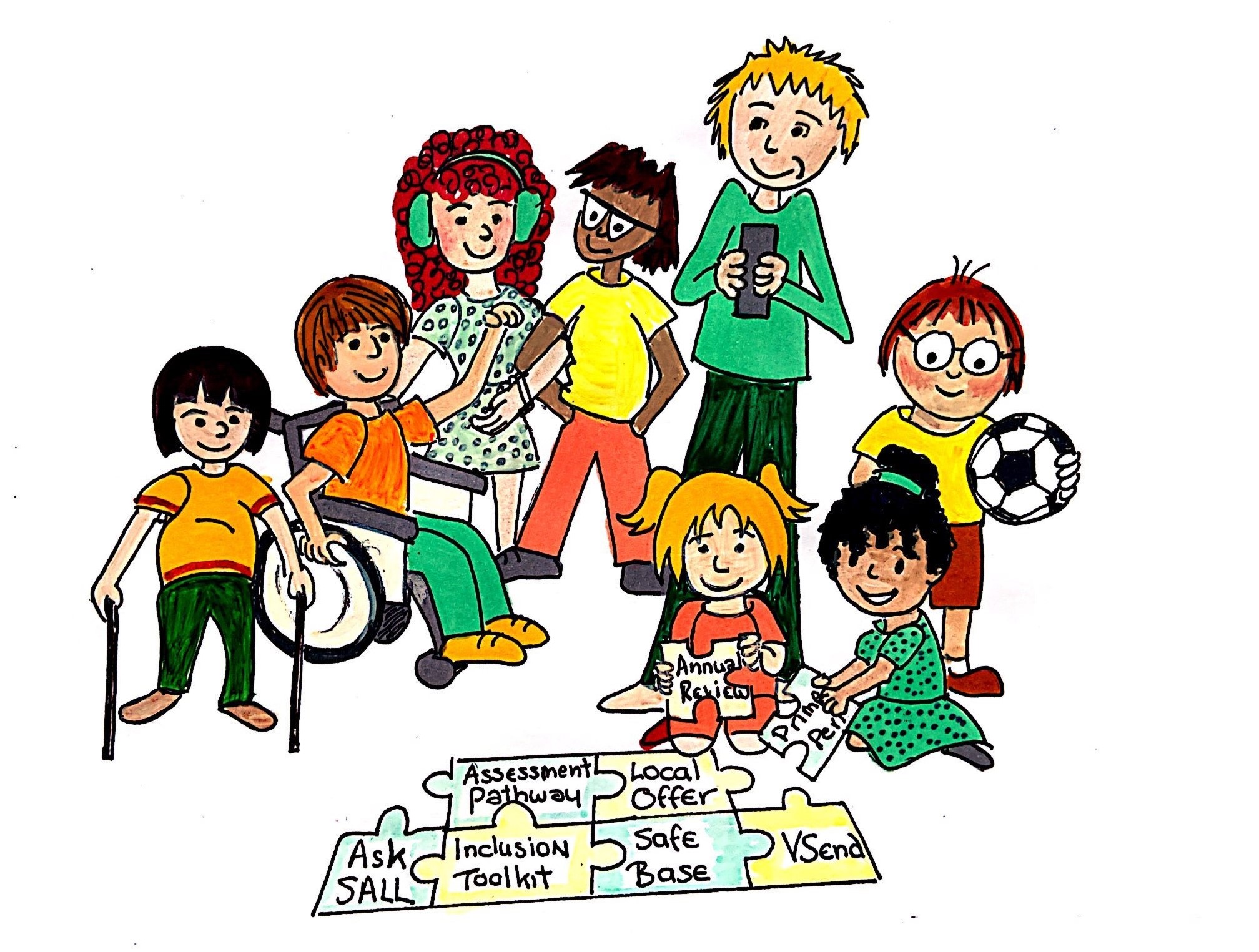Level 7-10 what you may notice
0-5
Level 7-8
The child has severe and consistent difficulties with social interaction and the social use of language.
- plays alongside, unwilling to share toys or activities, withdraws from the company of others
- does not use eye direction or pointing with finger to share an interest
- does not respond to body language, tone of voice, familiar voice or environmental stimulus
- displays habitual behaviours or fixations, with significant distress caused by any changes to routine
- unable to establish friendships and take part in the wider community
Level 9-10
The child has profound difficulties with social interactions, is very literal in the interpretation of situations and is very susceptible to sensory triggers which often lead to challenging behaviour.
- persistent difficulties in tolerating social interaction. Child may either vent frustration and anger in very obvious ways or become very quiet and withdrawn, limiting their participation in daily life
- shows no interest or engagement in environment around them
- understanding of non-verbal cues is severely limited
- persistent difficulties in coping in a wide range of social and learning situations and settings
- is resistant to change and may use aggressive behaviour to express this
- has rigid thought processes and routines that affect all aspects of nursery or school life
- an EHC Plan may be in place to recognise the child’s needs and provision required to meet them
5-16
Level 7-8
The pupil consistently shows difficulties which are linked to their communication and interaction difficulties which impact on their ability to access a learning environment without highly personalised support. The pupil’s needs are met through an individual, bespoke curriculum which is highly personalised. The pupil is able to access the classroom for limited periods, where they are able to experience success through planned opportunities alongside their peers supported by a member of staff.
- the pupil has persistent, significant difficulty in expressing their wishes and feelings, and in understanding others’ emotions, including difficulty in reading facial expressions.
- the pupil has limited motivation to initiate, respond or sustain social interaction
- they struggle to make friends and tend to fixate on individuals with a very limited understanding of social norms and cues
- considerable difficulty in dealing with change which can lead to extended periods of anxiety and behavioural changes
- interests are likely to become fixations and can interfere with daily life and social interactions. Pupil often (daily) either vents frustration and anger in very obvious ways or become very quiet and withdrawn in response to requests/ direction that do not align with their wishes
- doesn’t have the skills to be part of a group or form meaningful friendships
- preference for concrete and repetitive activities Is very susceptible to sensory triggers, which regularly leads to challenging behaviour
- school environment difficult to manage. For example, where a pupil has an extreme anxiety or sensory need
- needs a highly bespoke package to enable the pupil to cope with daily demands
- the pupil may see school as a threatening environment on a daily basis which leads to them being dysregulated prior to arrival
- significant ‘meltdowns’ at home are reported
- family have to make significant adaptations to manage home life
- significant difficulties with receptive or expressive language leading to challenging or very passive behaviours when needs cannot be communicated
- pupil uses a combination of verbal and alternative communication to meet their basic needs
- ability to communicate effectively may fluctuate depending on their level of emotional regulation
Level 9-10
The pupil shows severe and persistent communication and interaction difficulties which impact on their ability to safely access a learning environment without continual bespoke, personalised support. The pupil’s needs are met through constant support to access a flexible and responsive timetable planned to meet specific outcomes agreed by specialist outside agencies, parents, and pupil (where appropriate), Locality Authority SEN Manager and school staff. The pupil accesses a fully personalised timetable alongside a highly skilled member of staff.
- language impairment affects access to all aspects of the curriculum
- very slow response to verbal stimuli, low retention of abstract concepts. Struggles to appreciate the needs of the listener and is egocentric
- enduring social communication needs that mean participation in daily life is very limited
- they are unable to understand social cues to the extent that they have a very limited number of relationships with adults rather than peers, causing isolation
- rigidity of thought and communications consistently impede learning and lead to severe difficulties in functioning. Interests are intense and limit daily functioning, health and social interaction
- access to learning is extremely restricted due to high levels of anxiety and consequent challenging behaviour in familiar surroundings and with familiar support or people. The pupil cannot communicate the triggers for their distress
- extreme anxiety has led to school refusal despite a highly personalised and appropriate offer of provision
- needs a flexible and responsive package of 1:1 support to enable the pupil to cope with daily demands
- the pupil may see school as a threatening environment on a daily basis which leads to them being dysregulated prior to arrival


